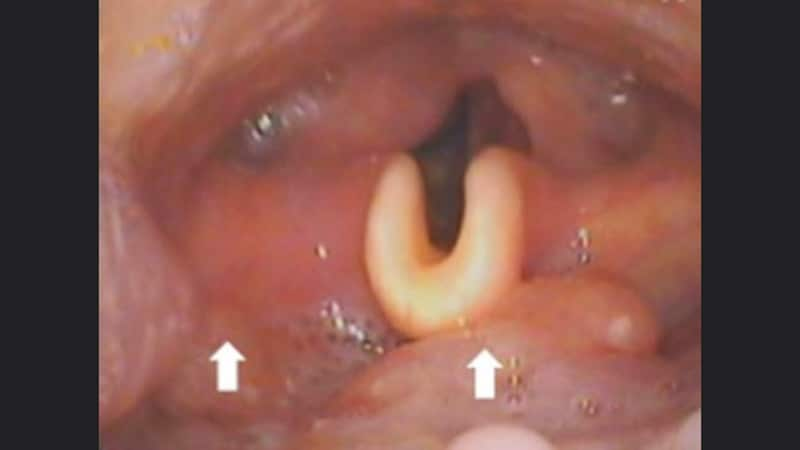The study covered in this summary was published on medrxiv.org as a preprint and has not yet been peer reviewed.
Key Takeaway
-
In oropharyngeal cancer, any degree of shortness-of-breath and moderate to severe dysphagia, including swallow and choke, 3-6 months after radiotherapy portend treatment failure and increased risk for death.
Why This Matters
-
Early predictors of recurrence and overall survival are needed to guide tumor surveillance after oropharyngeal cancer treatment.
-
The study suggests that dysphagia and shortness-of-breath fit the bill and can be used to intensify or deintensify surveillance as needed.
Study Design
-
The investigators surveyed 470 patients with oropharyngeal cancer with squamous cell carcinoma for swallowing, choking, and shortness-of-breath problems 3-6 months after radiotherapy, then followed them for a median of 31.7 months.
Key Results
-
Fifty-two patients (11.1%) had moderate to severe swallow scores; 26 patients (5.5%) had moderate to severe choke scores, and 44 (9.4%) had mild to severe shortness-of-breath scores.
-
Thirty-five patients (7.4%) had progression or recurrence and 12 patients (2.6%) died.
-
Swallowing problems (hazard ratio [HR], 19.5) and choking (HR, 2.4) were significantly associated with local failure, whereas shortness-of-breath (HR, 3.9) and choking (HR, 5.1) were significantly associated with distant failure.
-
There was a significant reduction in overall survival when all three symptoms were present.
-
A composite three-symptom score outperformed all clinical and individual symptoms for predicting survival (c-index, 0.75).
-
The findings held with human papillomavirus (HPV)–positive patients.
Limitations
-
Conclusions are uncertain owing to the low number of recurrences and deaths in the study, likely due to the high number of patients (more than 90%) with HPV-positive oropharyngeal cancer, which has a more favorable prognosis.
Disclosures
This is a summary of a preprint research study, “Sub-acute Post-treatment Dysphagia and Shortness-of-Breath Symptom Severity associates with survival and disease control in oropharyngeal cancer patients,” led by Jarey Wang of the MD Anderson Cancer Center, Houston, provided to you by Medscape. The study has not been peer reviewed. The full text can be found at medrxiv.org.
M. Alexander Otto is a physician assistant with a master’s degree in medical science and a journalism degree from Newhouse. He is an award-winning medical journalist who has worked for several major news outlets before joining Medscape and also an MIT Knight Science Journalism fellow. Email: [email protected].
For more news, follow Medscape on Facebook, Twitter, Instagram, and YouTube
Source: Read Full Article
